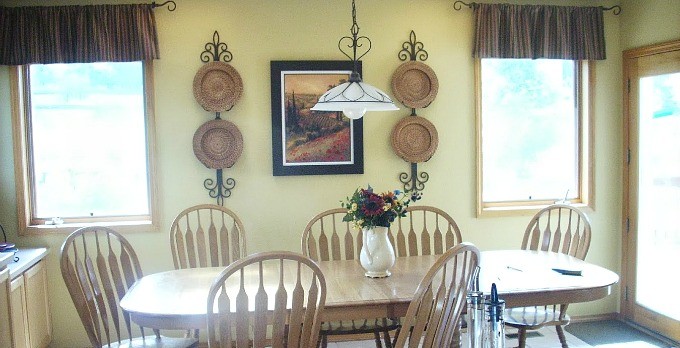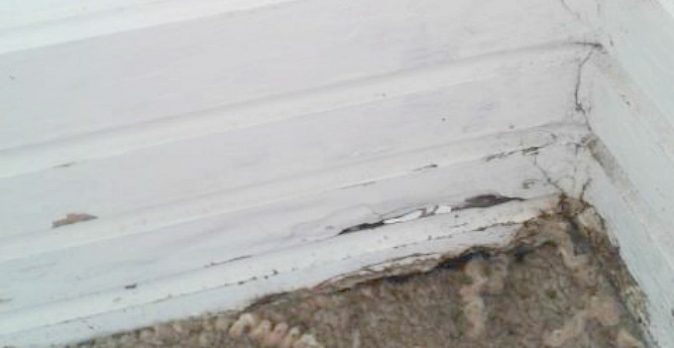Are women more health conscious than men? Not necessarily. There are many men who are quite proactive with their health. However, many women find themselves interested in health, while their spouse is not.
I have found this to be true in my marriage. Because of our health crisis in 2007, I have been motivated to make dietary, and lifestyle changes. My husband has been more reticent.
This conflict has been a struggle for me. The more I learn, the more I understand that health does not come “naturally.” It requires effort and intention. How do I get my husband on board?
The key for me has been to find a balance between letting go and sharing information. I haven’t always succeeded. With my guilt-inducing looks, I have been rather unpleasant at times.
Of the two strategies, I have found that letting go is often the healthier way to go.
I asked my husband to write a piece explaining this relational dynamic in light of our family’s toxic mold journey. While some of this applies only to those who have had a serious hit like ours, his insights may prove helpful to others with similar conflicts.
Men and Health – A Reflection by Chris Fabry
I can’t tell you how many times people said to me, “With your house, it was just your kids affected, right?” They assumed the toxic exposure hit only the young and “vulnerable”.
Usually, I said something like, “No, all of us were affected. The kids had it worse, though.”
My children, my wife, our pets—they were all suffering from the exposure. The symptoms were clear. And as protector/provider, I eventually realized we had to get them to safety. And after we reached safety, I finally realized they needed medical help. That’s why we moved to Arizona.
What I didn’t spend much time thinking about was my own health. There are several reasons for this—the biggest being that the “man” is supposed to suck it up and do what he has to do. When you’re in a battle, it doesn’t matter if you have a wound, you have to take the next hill. So most men will climb that hill without taking a look at how much they’re bleeding. You do what you have to do and forget about the pain. Men like me find it easier to narrow the focus of life to one or two things. Yes, this is a performance orientation, but it works for us. We need to get this job done over here and concentrate to make it happen.
It has worked for the kids and my wife because we vacated the house, and I finally conquered the hill. But after you reach that first hill, you realize you have to keep going. You have to pay for this adventure called life. You have to keep providing. So you get on the treadmill and keep pushing, keep going, keep earning. It’s something that is formed early on, deep in the DNA. And this is a good thing, not bad.
The husbands I meet who have gone through the losses that toxic mold brings usually have a hard time believing that mold can cause so many problems. And when the truth dawns, it’s like a weight that falls on them. If it’s true that you have to vacate and can’t bring your stuff, that means…
That means everything you’ve built your life around, investing in a house, building for the future—it crumbles in the face of the truth about what your family is experiencing. So the last thing on the list of things to accomplish is look at your own wound. If you have pains or symptoms, you push through them because if you look long enough at what’s going on inside, you lose momentum or your resolve to keep all the plates spinning.
Do the next thing. Move forward. Suck it up. Keep pushing.
At some point, you eventually get to a place where there isn’t a crisis every moment. And you move past the point of creating a crisis by worrying about what might happen if. You begin to breathe because financially things have evened out and are a bit more stable.
This is what has happened to us after only five years. I say “only” because it feels like a lifetime and a second at the same time. All those problems seem like they happened so long ago, but at the same time I can be pulled right back into them by looking at a picture or a bill from the hospital I find in an old stack.
It took a long time to allow even myself to think about what happened to my body in that house. I probably thought that if I didn’t think about it, it wouldn’t be real. That’s how I felt about the house at first, plugging my ears and saying “La la la la la!” This can’t be happening. And if I live like it’s not going on, I can create my reality. But the reality is what is real, whether you recognize it or not, and reality about your body is sometimes the last thing that is obvious to a toxic-exposed dad.
I still haven’t fully dealt with all of my struggles. I lost a lot of weight, changed my diet and exercise routine, took the medication prescribed, and avoided other exposures, but there are things today that I choose not to look at because of momentum, the treadmill of life, and fear.
Fear is the biggest component of dealing with your own body’s reaction to a toxic hit. If you’re taking a hill, you can’t afford to give in to fear—you push forward through the dark and the questions. But you tell yourself this is for the benefit of the group. You push aside your own needs for the sake of the whole.
What I’ve discovered is that taking care of my needs IS taking care of the whole. When I deal with my pain, I’m affecting the platoon in a positive way.
And that will help you take the next hill when you’re called to duty.
Related Posts
- 64
- 61
 The following interview appeared in the May 2014 newsletter of Samaritan Ministry. Samaritan offers a Biblical, non-insurance approach to medical care, and after six years of pursuing health via nutrition and other alternatives, we are excited about the unique program offered by Samaritan. (Read more about Samaritan here. Read more…
The following interview appeared in the May 2014 newsletter of Samaritan Ministry. Samaritan offers a Biblical, non-insurance approach to medical care, and after six years of pursuing health via nutrition and other alternatives, we are excited about the unique program offered by Samaritan. (Read more about Samaritan here. Read more… - 58
- 56
- 54











Thanks, Chris!!! Wishing continued healing and blessings for you and Andrea and your family. You inspire us all to have hope and keep struggling forward somehow.
Thank you on behalf of Chris, Jennifer. Yes, it’s one step at a time isn’t it?
Thank you for sharing. I know this will help many.
I too am more into health than my husband. When I get frustrated I have to remember how far he has come in the 34 years I have nagged him…ah…I mean the 34 years we have been married:)
Good point of view.
This is great. My husband is completely on board with me doing what I do for our kids – and even myself as I’m working through some thryroid thing – but he usually won’t let me do much with him. Baby steps 🙂
In my personal situation and how I coach others is that everyone has their own journey including our spouses. While we’d like them to be on the same sentence with us many times they are several chapters behind. But be encouraged anyway! We can continue honoring our own truths as they too (hopefully) will honor theirs by embracing wellness and the various components that come along with it! Great post.
Great Post! It is a lonely place. I get help from a great psychologist who listens to all the frustration my spouse is tired of hearing, and she believes mold can make you sick. My husband is a wonderful man, husband, Grandfather. Accepts the mold illness somewhat, and does a lot for me, but there’s still that doubt in him. So keeping a lot quiet to keep the peace, is a lonely place. But there’s wonderful roll models like you, Andrea, who give us all hope and understanding, and we aren’t alone then. Thank you Andrea.
Nice to hear from you as always, Susie. It really is a lonely road.